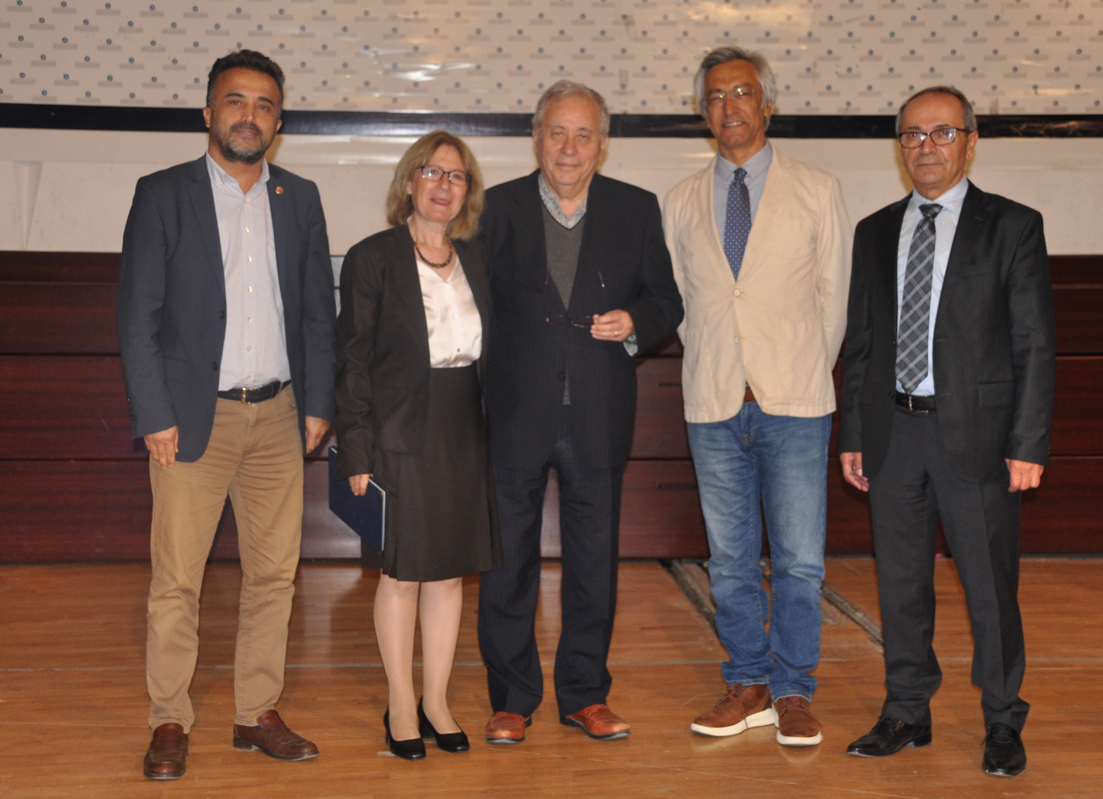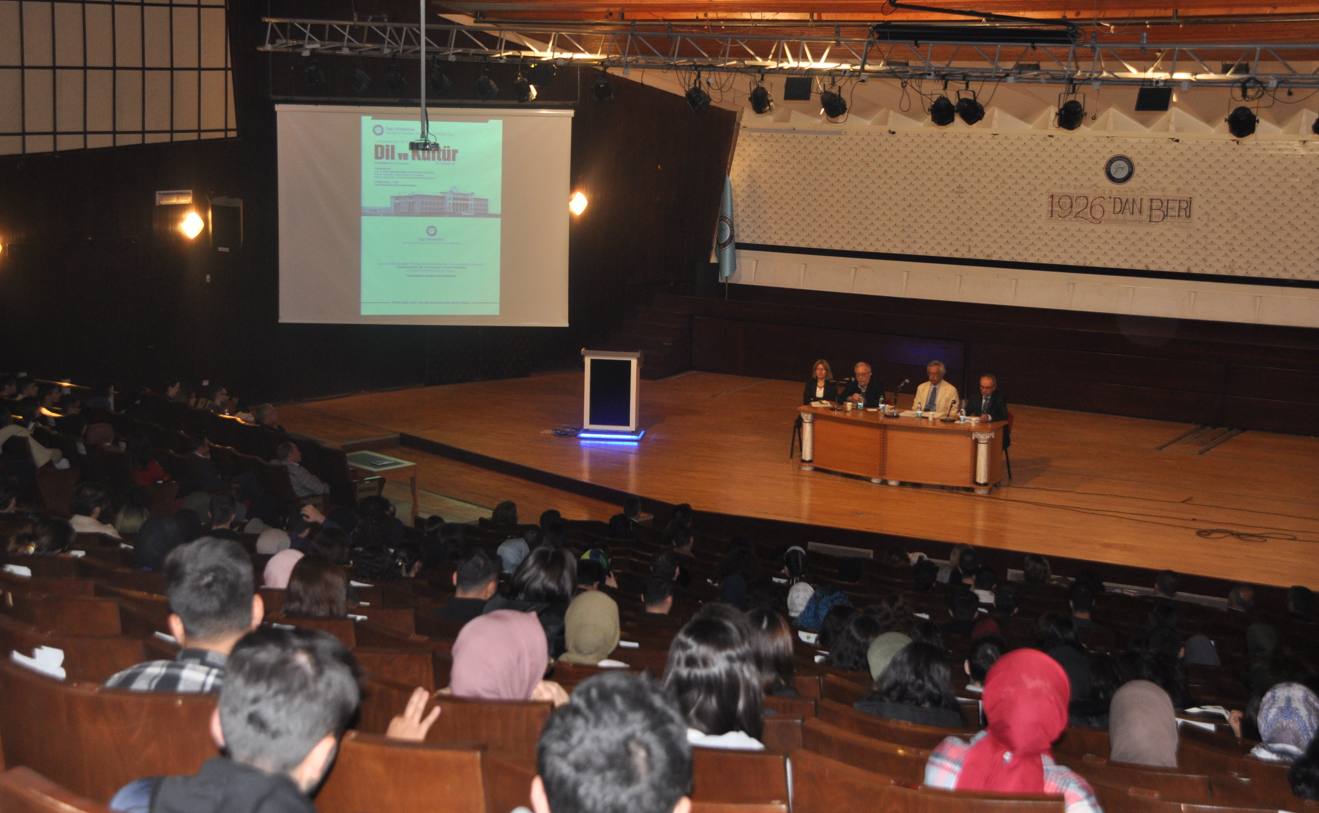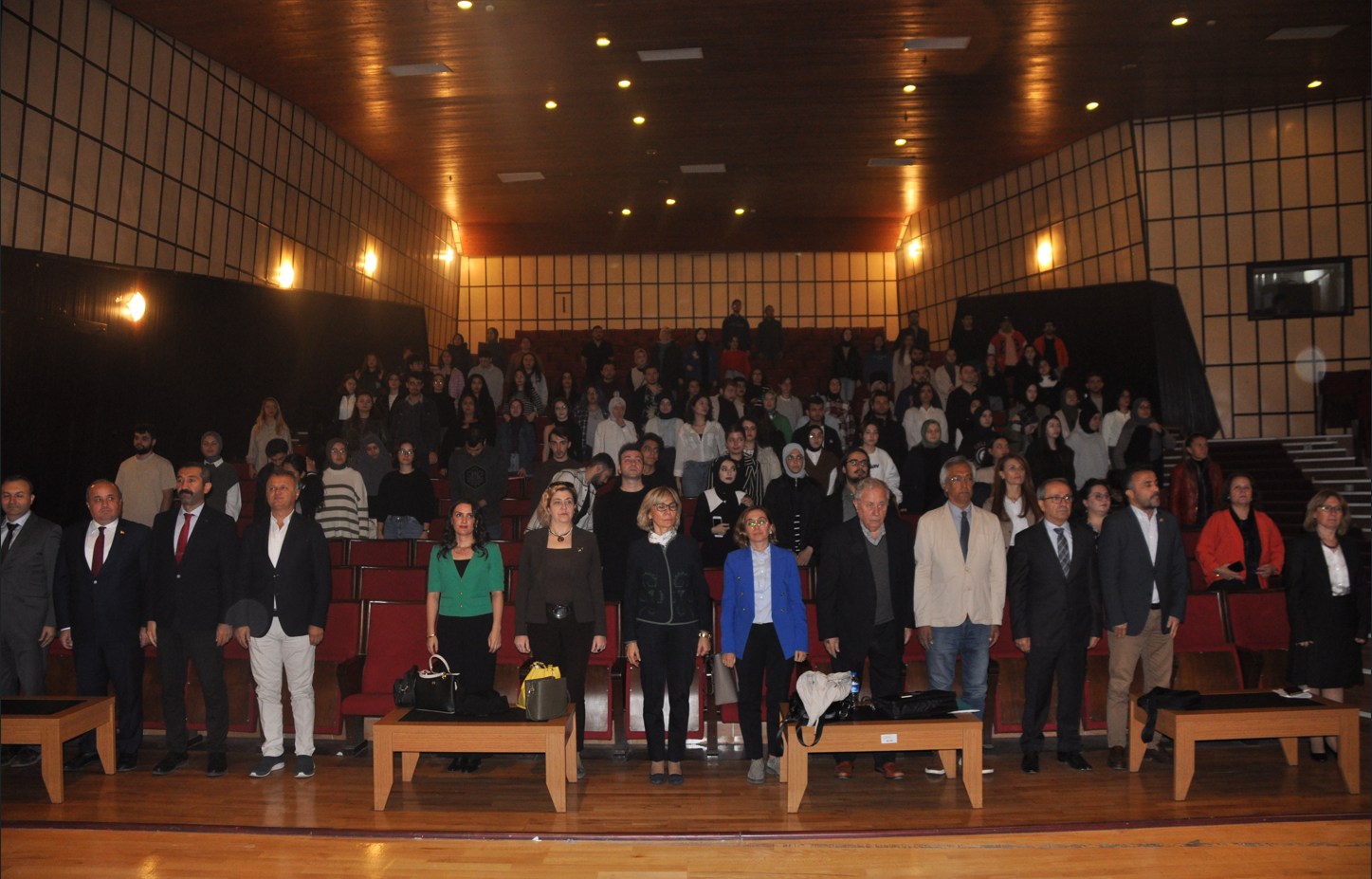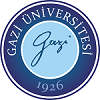A panel titled "Our Language and Culture Policy in Commemoration of the 100th Anniversary of our Republic" was organised by our Department. Our Vice Dean Prof. Dr. Yasin ÜNSAL, Prof. Dr. Ahmet Bican ERCİLASUN, Director of Hacettepe University Institute of Turkish Studies Prof. Dr. Yunus KOÇ, Head of Department of Turkish Language and Literature Education Prof. Dr. İsmet ÇETİN, Head of Department of Turkish Education Prof. Dr. Fatma AÇIK, lecturers and students attended the panel held in Gazi Concert Hall.
Prof. Dr. Yasin ÜNSAL, Deputy Dean of Gazi Faculty of Education, who made the opening speech of the panel, which started with a moment of silence and the reading of the National Anthem, said: "Culture and language are one of the most important mortars of our society. In the 100th anniversary of our Republic, it is extremely meaningful to organise such a panel in this centuries-old educational institution, which is almost contemporary with the Republic. For this reason, I would like to thank everyone who contributed to the organisation of this panel and our speakers."
After Prof. Dr. Yasin ÜNSAL's speech, the panel started. Panel Chair Prof. Dr. Fatma AÇIK emphasised that language is the only element that gives the individual an identity and gives a sense of belonging by integrating with the society and also gives the qualification of being a nation. Stating that languages, which are open to interaction and change due to their own laws and nature, change and develop depending on language policies, Prof. Dr. Fatma AÇIK said: "In order to protect languages, it is necessary to ensure their use and continuity in all areas of life such as education, diplomacy and trade as well as the relevant laws. In our country, starting from the Tanzimat Period with the establishment of the Republic, it has been tried to ensure the effective use of Turkish in various periods, but today it is exposed to the influence of foreign languages. In this context, our panelists will inform us about the developments and studies in our country in the context of language, history and culture."
Prof. Dr. Ahmet Bican ERCİLASUN, in his speech on "Language Policy in Atatürk's Era", noted that the movement for the simplification of Turkish started in Thessaloniki in 1911. Prof. Dr. ERCİLASUN stated that Thessaloniki was the second largest cultural city of the Ottoman Empire after Istanbul at that time. Explaining that it was decided by the intellectuals and writers of that period to write works in the language of the people, Prof. Dr. Ahmet Bican ERCİLASUN said that Ömer Seyfettin and Ziya Gökalp started to use a simple language in their works.
Prof. Dr. ERCİLASUN stated that with the simplification movement, which Atatürk personally followed, studies were carried out to remove the words of foreign origin in Turkish and to use Turkish equivalents instead: "Using Turkish with all its richness has become a matter of national education. In the Great Language Congresses held in 1932, 1934 and 1936, studies were carried out on these issues. In 1926, after the decision of the Turks in the Soviet Union to switch to the Latin alphabet taken at the Turcology Congress held in Baku in 1926, the Latin alphabet was adopted in our country in 1928 in order to increase the literacy rate in the country and to ensure language unity with other Turks. In 1932, the Turkish Language Institution, which was established by Atatürk by paying its budget, has carried out studies all over Turkey for the widespread use of Turkish as well as the simplification and identification of Turkish."
Prof. Dr. Yunus KOÇ, in his speech on "Atatürk Era History Policy", mentioned that the interest in Turkish and world history, which started with the Tanzimat in the Ottoman Empire, developed the understanding of history in the Western style. Prof. Dr. Koç stated that obtaining information through the analysis of past information based on facts changed the traditional understanding of history in the Ottoman Empire, and noted that historical consciousness based on human action on what happened in history served as a glue in the establishment of nation-states.
Prof. Dr. Yunus KOÇ noted that very rarely in history, state rulers wrote history by telling what they did and underlined that Atatürk also wrote a history with his Nutuk. He said that Atatürk's history policy and his efforts to eliminate misinformation and prejudices about the Turks, that the Turks did not come from Central Asia and established a state from a tent, and that it was a society that established civilisation with its 2 thousand years of history, found a place in the world history.
The last speaker of the panel, Prof. Dr. İsmet ÇETİN, talked about "Cultural Policies in the Republican Era". Noting that the most important element for a nation to come together in the centre is cultural codes, Prof. Dr. İsmet ÇETİN stated that the masses were inspired by cultural codes and modernisation took place. Prof. Dr. ÇETİN stated the following: "Atatürk wanted to modernise the country in a Western style. The central authority implemented modernisation from top to bottom in order for the people to have better living conditions. Efforts were made for modernisation in every field from agriculture to industry, from press to art. Turkish Hearths and People's Houses were established for the formation of cultural codes in the minds of the people in order to move from the age of the Ummah to the age of the nation."
The panel ended with the presentation of a plaque of appreciation to the speakers.



